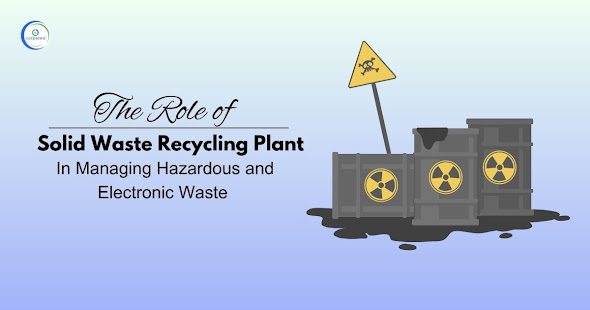The Role of Soild Waste Recycling Plants in Managing Hazardous and Electronic Waste
Introduction: Solid waste recycling plants
In today's rapidly evolving world, the management of waste has become an indispensable challenge. With the exponential growth of hazardous and electronic waste, it has become imperative to adopt sustainable solutions to mitigate the environmental impact. Solid waste recycling plants have emerged as crucial players in this endeavor, playing a pivotal role in managing hazardous and electronic waste. These plants play a pivotal role in handling various types of waste, including hazardous and electronic waste. This article delves into the importance of solid waste recycling plant and their role in tackling the complex issue of hazardous and electronic waste.
Understanding Hazardous and Electronic Waste
Hazardous waste encompasses materials that pose a threat to human health and the environment due to their toxic, flammable, or reactive nature.
Electronic waste, or e-waste, comprises discarded electronic devices and equipment, often containing hazardous substances like lead, mercury, and cadmium.
The improper disposal of hazardous and electronic waste can result in severe pollution and health hazards.
Significance of Solid Waste Recycling in Waste Management
Solid waste recycling significantly reduces the strain on landfills and incineration facilities, promoting resource efficiency.
Recycling conserves natural resources and energy, as recycled materials require less energy to produce compared to virgin materials.
Proper waste recycling reduces greenhouse gas emissions, contributing to global efforts to combat climate change.
It minimizes the depletion of raw materials, thus ensuring the availability of resources for future generations.
Role of Solid Waste Recycling Plants
Collection and Segregation: Recycling plants play a crucial role in collecting and segregating different types of waste, including hazardous and electronic waste, at the source.
Sorting and Processing: These plants use advanced technologies to sort and process recyclable materials, ensuring effective resource recovery.
Hazardous Waste Treatment: Solid waste recycling plants employ specialized techniques to safely treat and manage hazardous waste, preventing its harmful impact on the environment.
E-Waste Recycling: Recycling plants dismantle electronic devices, recover valuable materials, and ensure the proper disposal of hazardous components, mitigating e-waste's environmental impact.
Public Awareness and Education: These facilities contribute to public awareness and education campaigns about responsible waste disposal and recycling practices.
Collaboration with Industries: Recycling plants often collaborate with industries to develop sustainable practices and promote the use of recycled materials in manufacturing processes.




Comments
Post a Comment